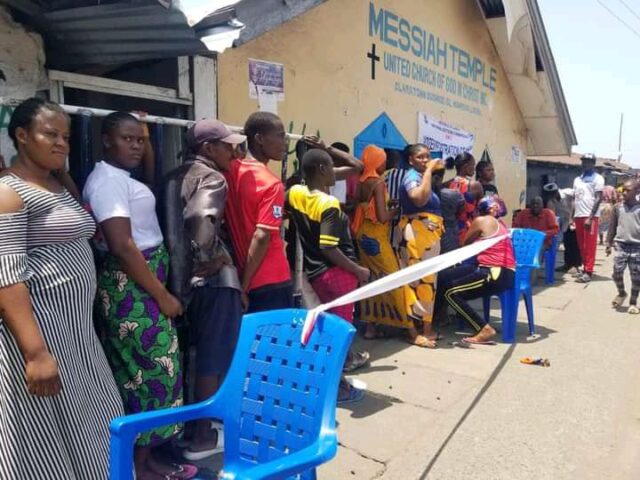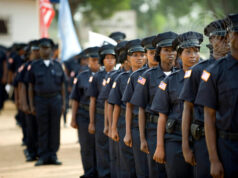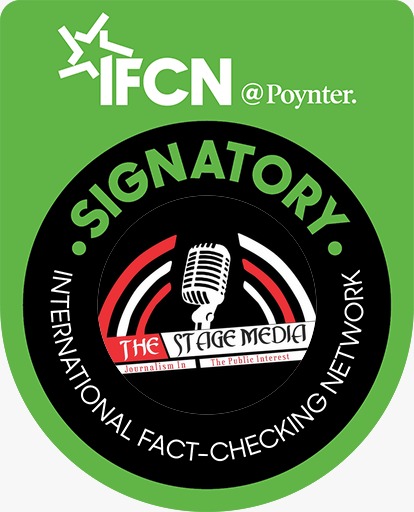
Liberia held general and presidential elections in 1927, roughly 96 years ago. Thomas J. Faulkner of the opposing People’s Party and incumbent Charles Dunbar Burgess, King of the True Whig Party, ran for president.
According to the National Elections Commission, there were 15,000 registered voters in Liberia at the time (NEC). By the time voting was over, King had received 96% (240,000) of the votes cast, while Faulkner had received 4% (9,000).
In other words, according to statistics, more than 1,660% of voters turned out in Liberia in 1927. Liberia would later set a global record for rigged elections that may still stand today
Years later, Liberia’s National Elections Commission Chairman Francis Johnson-Morris (who did not preside over the 1927 elections) referred to that election as “the most rigged ever.” Indeed, the Liberian elections of 1927 were inscribed in the Guinness Book of Records as “the most fraudulent election ever reported in history.”
In 1985 Cllr. Emmett Harmon was at the helm of the National Elections Commission. He presided over an election marred by allegations of widespread fraud and rigging, the final results announced by Cllr. Harmon showed Doe won with 50.9% of the vote, just enough to avoid a runoff.
The aftermath of the ’85 elections saw Liberia drift further into chaos and uncertainty and witnessed increased human rights abuses, corruption, and ethnic tensions, ultimately leading to the start of the first civil war in 1989 and Doe’s overthrow and murder in 1990.
Harmon would later admit that there were irregularities but appealed to Liberians to accept the results, which he described as “sincere and just.”
Thirty-eight years later, Liberia held three general elections between 2005-2017, and many remain skeptical about the election process in Liberia.
According to experts, there remain unanswered questions from both local and international standards of elections relating to irregularities and voter fraud.
Liberia’s elections have always received low marks owing to voter fraud and other factors. This has also resulted in a loss of trust in electoral processes and, to a large extent, political apathy, particularly among the country’s youth, who constitute a more significant proportion of the voting population.
The Stage Media investigates voter fraud in Liberia as the country prepares for the general election in 2023. It draws the attention of the electorate and critical stakeholders to them as the country prepares for the next round of elections on October 10. Electoral fraud is simply unauthorized interference with the election process that undermines the people’s will.
This occurs in Liberia in various ways, including intimidation at the polls using gangs or even state security for violence, trucking, vote-buying, underage voting, results before or after elections to favor a particular party/candidate, and others. All of these have had a detrimental effect on Liberians’ electoral participation, especially the youth. This article looks at four typical methods of voter fraud in Liberia elections.
Voter Trucking and Vote buying
In exchange for financial gain after registration and voting, these eligible voters are transported from one location to another to be registered.
Since post-war Liberia, voter trucking has been widespread within Liberian body politics, severely eroding the essence of representative democracy.
In a Daily observer report, a bus trucking voters were stoned and left damaged while en route to Bomi County.
It is reported that angry citizens reportedly damaged the National Transit Authority (NTA) bus bearing plate number B-30510 in the Brewerville community outside Monrovia as over 200 persons were reportedly onboard the NTA bus heading to Bomi County to form part of the ongoing registration process.
Because only the more well-known, wealthy political parties can financially entice voters, vote-buying prevents some from competing on an even playing field.
According to Lisa Bridges, she rejected US$50 from a politician who asked her to be trucked to Grand Cape Mount County to vote for him.
On election day, before or during voting, vote buying is more prevalent. This is a typical trend during Liberian elections, according to astute observers. Images and videos of politicians buying votes from voters appear online during every election cycle. Politicians have been able to weaponize hunger and the nation’s growing poverty.
Registration Kits Insufficient
Former NEC chair James Fromayan in an interview with TSM, said the Voter Registration currently going on is having a series of problems, “There are inadequate Training kits in the country for the Training of Trainer (TOT)Workshop.”
“By conducting Voter Registration in phases suggests that the NEC does not have sufficient VR equipment to conduct simultaneous VR nationwide which ought to be the case.”
NEC communication officer Henry Flomo acknowledged that trucking financially induced voters is against the electoral laws and was keen to state that the commission “does not go out looking for cases.” As such, it remains the sole prerogative of citizens to allow or reject the trucking of commercial voters into their respective districts or counties.
“Trucking is against the law, but what we can come out to say is the people out there are the first to either allow or stop trucking. You have a right if you see someone at your polling precinct or registration center to report the matter to the Registrar. You may not know every community member, but you have the right to protest; and that person can be stopped right there. If that person feels uncomfortable, then we have a case right there.”
Section 10.1a of the National Elections law prohibits the trucking of voters. According to the law, the such violation constitutes an electoral offense and is punishable by a fine or imprisonment for not more than six (6) months or both. (https://studio928.net/) Also, Section 3.1 of the Electoral Act states: “A person must register to vote at a voter registration Center established by the NEC for the place where he or she ordinarily resides and must vote at the polling place established by the NEC for voters registered at that center.”
Even though the Electoral Act defines voter trucking as a legal violation and provides some form of punishment for such electoral malpractice. However, the National Electoral Commission (NEC) has remained silent on prosecuting offenders.
Underage Voting
According to the constitution, only Liberians aged 18 and up are eligible to vote.
While underage voting is less common in cities, it is reportedly common in rural areas with little or no media attention. Politicians have been accused of intimidating and bribing electoral officials in many remote regions of the country to allow children who are not eligible to vote. The 2023 election is Liberia’s first biometric election to be carried out by the NEC, with data passed to the National Identification Registry and from there to the Liberia Statistic Geo-Information Service (LISGIS).
The biometric registry is intended to cut down on duplicate voter registrations and underage voting. Still, there is no assurance that the National Elections Commission will audit the registration process.
Underage voting is allegedly a common occurrence in rural areas. Despite being a crime, which electoral officials are fully aware of, they are occasionally compelled to comply with the communities in carrying out this activity for the safety of their lives.
Voter Intimidation by Politicians, Thugs, and State Security
Voter intimidation is another frequent method of electoral fraud in Liberia. Politicians have used this tactic over the years to discourage potential opponents’ supporters from casting ballots.
Security personnel has also been accused of carrying out this act, though political thugs and local county officials are typically the ones who do it.
On October 1, 2021, the political opposition party Alternative National Congress accused police of political intimidation following the arrest of party member Jethro Saylah Kangar Harris in Ganta, Nimba County, while the party supported an opposition candidate in a congressional by-election.
The party called on the police to protect persons’ lives and property rather than harass and violate their rights and civil liberties.
Gbarpolu County, located in Western Liberia, came to light in 2021 when an influential chief, identified as Paramount Chief Mcgill Wuluah, seized the ballot boxes assigned to the Precinct in Nomodatonau Town, also known as Norman for short, located in District #3, near the Sierra Leone border.
The election was postponed until December 15, 2020. Nonetheless, on the eve of the election, the powerful all-male traditional Poro society attacked Gbotoe Kanneh and her supporters. It barred them from entering the town, allegedly on the orders of Chief Wuluah, while her nearest rival, Rep. Alfred Koiwood of the ruling Coalition for Democratic Change (CDC), was already canvassing in town.
Rep. Koiwood was the incumbent in Liberia’s 54th Legislature’s House of Representatives, representing the county’s First Electoral District.
Gbarpolu County Superintendent J. Keyah Saah was also accused of threatening local officials with job loss if they did not vote for Rep. Koiwood.
A similar incident occurred when Sinoe County Superintendent dressed in an army-like uniform with a convoy of three pick-ups filled with CDC supporters headed towards the tally center in Greenville at 11:am, an action condemned by the Liberia Elections Observation Network (LEON).
Former election commissioner James Fromayan said fraud in an electoral process is only possible in most instances if the Electoral Management Body (EMB) is inclined to allow such a practice to occur.
“In a nutshell, it boils down to a corrupt leadership of any given EMB. Polling staff members may commit fraud at a low level without the knowledge of the leadership of the EMB. Such polling staff members will do that at their own risk because a corrupt-free EMB can institute decisive actions consistent with prevailing laws in penalizing such people.”
In Liberia, the head of the EMB comprises a 7-member Board of Commissioners (BOC) with one Commissioner as Chair and another as Deputy.
Given the inherent deficiencies at the board and Secretariat levels, any chairperson lacking the necessary electoral experience, competence, and skills may face difficulties.
While much emphasis is placed on fraud and rigging, some argue that an election that is poorly conducted and flawed with errors and mistakes may not be due to an intention to cheat but rather to a lack of know-how; this, in itself, results in the same outcome as a rigged election, public rejection of the result.




